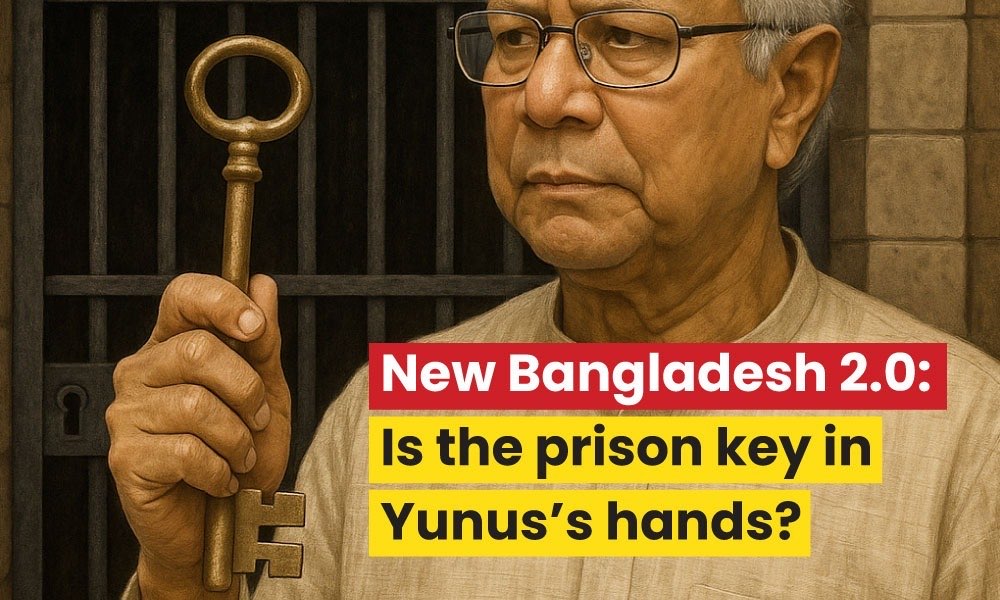5321
Published on February 25, 2020- Zunaid Ahmed Palak
Bangladesh is continuing its strong development trajectory, marching ahead of its peer South Asian countries in terms of rank in Inclusive Development Index (IDI), GDP growth rate and other human development achievements.
The current Government's deliberate attempts to leverage ICTs for poverty reduction and transformation of the fate of common women and men of Bangladesh played a key role in this growth. The Government recognizes digital inclusion as the only way to allow rural economic activities and the rural workers capture larger pieces of the economic pie. The Government very carefully designed the digital services to ensure that it is relevant for all three groups of Bangladeshi citizens: Digital natives: younger, tech-savvy, generations growing up with technology, Digital adapters: middle- aged individuals who have adopted technology and Outliers: the minority who stay away from technology.
The Government has been deploying concerted efforts towards achieving the Digital Bangladesh Vision by year 2021, marking the 50th anniversary of Bangladesh's independence. The Digital Bangladesh philosophy of the Hon'ble Prime Minister Sheikh Hasina is to protect people's democracy and human rights, ensure transparency and accountability, establishing justice and ensuring delivery of government services to the citizens of Bangladesh through maximum use of technology, with the ultimate goal being the overall improvement of the daily lifestyle of general people.
The Government has been proactively pursuing the digital penetration of all government portals by the year 2023. The country developed the National Portal in 2014, which now houses over 45,000 websites and services of different Government Offices, with about 60 million hits a month on average. Over 5000 Digital Centers have been set up across the country to help provide the various Digital services to the citizens at the last mile, addressing the issue of Digital Divide. To ensure interoperability, Bangladesh National Digital Architecture was established.
Digital services like Smart NID, the biometric database of unique IDs, fingerprints and iris scan has been successful in making smoother operation of citizen services and negating problems like fake IDs and impersonation. We have issued over 100 million digital IDs to our citizens, which is one of the highest in the world. Machine readable e-passports was launched early this year to enable faster immigration process, greater accuracy, and better data matching against immigration databases and watch lists.
The "My Village My Town" initiative is one of the notable examples of the Prime Minister's bottom-up vision. Under the initiative, modern city amenities are being expanded to every village of Bangladesh. For the first time in the history of Bangladesh these marginalized people have been recognized as the centre of economic activities. Public spaces and urban services are being designed to make the cities more inclusive for women and other groups of people with special needs. Digital services, access to information and technical and vocational training for the less privileged women have been playing major role in empowering them.
As part of the Digital Island initiative, Moheshkhali, a remote and impoverished island of Bangladesh has been turned into the nation's first "Digital Island". The Government connected Moheshkhali to the mainland by 14 miles of fiber optic cable and also established an ecommerce centre for the artisans of Moheshkhali to sell their products and earn a living. The island will soon be home to sea port and power plants. The Government plans to replicate on other remote islands that dot the country's Bay of Bengal Coastline. Fiber optic connectivity has been established up to the Union level, providing high speed Internet connectivity.
The Government plans to roll out the fifth-generation cellular network technology (5G) in Bangladesh by 2021, ensuring faster and more reliable internet coverage across the country.
A key component of the government's digital inclusion strategy is to promote the uptake of mobile money and other digital payment platforms. Efforts are being made to popularize Mobile Financial Services (MFS) to ensure higher penetration at the bottom of the pyramid.
In recent years MFS has had a large contribution in lowering the unbanked population, rural-urban capital flow and growth of online e-commerce transactions. In the last five years, growth of mobile financial services in Bangladesh has skyrocketed, with bKash leading the way. In 2018, registered users of Non-Banking Financial Institutions (NBFIs) were more common among the rural poor than among the adult population as a whole. Mobile money transfers were the most popular digital use case in Bangladesh and uptake of mobile money transfers was 3X greater than bank transfers.
Digital health services including telemedicine have already been effective in health services delivery as well as diagnostic, promotive and preventive measures. From the private sector many digital health service startups have come up with innovative solutions including remote diagnostic capabilities, cloud-based health monitoring system, web portals that disseminate basic health information, etc., to help bridge shortages of trained medical professionals in rural areas. The country initiated a National Digital Health Strategy last year as an essential step for using technology to improve the accessibility, quality and affordability of health services. The digital health strategy will provide direction for efforts to use digital technologies in a more coordinated way for further strengthening the health system.
The government is implementing a number of mega projects to establish an integrated and uninterrupted communication network in the country. To capture manufacturing investors from home and abroad, the Government has taken initiative to establish 100 special economic zones and 28 IT parks in various parts of the country, many of these are already operational or under construction. These economic zones and IT parks will play an effective role in improving the employment and quality of life of people in every region of the country.
Bangladesh has experienced tremendous growth in the last decade under the leadership of our Honourable Prime Minister Sheikh Hasina and her Honourable ICT Adviser Sajeeb Wazed. Today, we experience nearly 8 percent GDP growth, as one of the fastest growing economies in the World. Bangladesh ranked 34thin the WEF's Inclusive Development Index, 2018. By 2030, Bangladesh is projected to become the 24th largest economy in the world. The key factor behind this growth has been smartly utilizing ICT to spur growth in all sectors.
Zunaid Ahmed Palak is the Minister of State for Information and Communication Technology (ICT), Government of the People's Republic of Bangladesh. Palak was nominated as Young Global Leader in 2016 by the World Economic Forum
Writer: State Minister for ICT, Govt of Bangladesh
Source: Daily Observer (23 February 2020)














